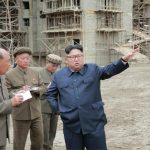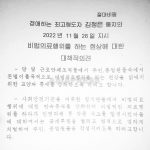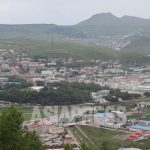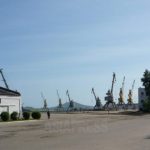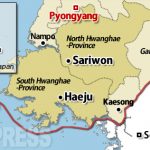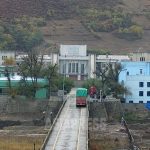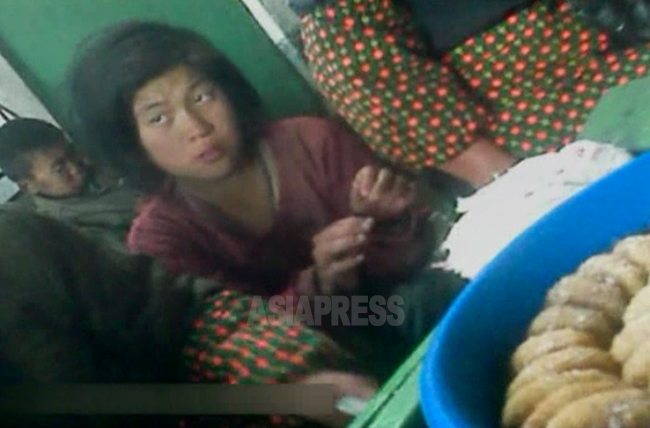
◆ Behind the missile launches are people suffering from poverty
The lives of ordinary North Koreans appear to be worsening. Poverty-stricken people in Yanggang Province have been gathering in groups at the head offices of the Workers’ Party of Korea and local government to demand food to eat. (KANG Ji-won)
◆ Poverty-stricken city dwellers lose source of income
Following the outbreak of the COVID-19 pandemic in January 2020, the Kim Jong-un regime took extreme measures to block the spread of the virus, including shutting down almost all trade with China. Urban dwellers who faced extreme restrictions on economic activities saw their cash incomes fall dramatically as a result, and the elderly, ill and other members of the country’s vulnerable classes died of starvation and disease.
Currently, the level of poverty suffered by people living in cities has grown even more dire, with some selling off all their possessions to make up for all the money they have lost. A reporting partner in Hyesan, Yanggang Province, gave the following report in mid-February about the recent mood in the city:
“People suffering from economic difficulties came out almost everyday to the local district office to demand measures to deal with the food situation, but nothing happened, so they’ve recently started gathering in front of the party and people’s committee (local government) offices.”
The reporting partner said that what drew his attention was the presence of elderly people among those gathered.
◆ Unable to respond, cadres go into hiding
“The government and party offices have become places for elderly people to gather to beg for food. Cadres have to find ways to avoid them because they can do nothing for the beggars. On February 10, in front of the Hyesan people’s committee building, an elderly man in his 70s caused a ruckus when called out to each of the cadres going to work, saying, “I live by myself and I’ll die of starvation if things continue like this, so please give me food!” Other elderly people heard about what happened and gathered in the same place, but that’s when the authorities send down security guards to disperse them, which led to fights breaking out. The government dispersed those gathered because they can’t do anything for them.”
Based on an investigation by ASIAPRESS of the situation in North Hamgyung Province and Yanggang Province, the state-run food shops that sell food at cheaper prices than those found in markets sold one kilogram of corn for KPW 2,400 on February 12. Each household was limited to buying just seven kilograms of corn, however. (The market price of corn is around KPW 3,200. KRW 10 is around KPW 60)
North Korea suffers from shortages of food for side dishes and cooking oil. Typically speaking, a family of four consumes 50-60 kilograms of rice and corn each month. The rest of the food needed by families is purchased at markets, but people lacking cash have difficulty buying food at markets these days.
◆ Will the Kim Jong-un regime ask the UN to supply food?
The North Korean government understands the severity of the country’s food crisis. In a rare move, the authorities announced that an expanded meeting of the Workers’ Party Central Committee will be held to discuss the country’s agricultural issues.
South Korea’s Dong-a Ilbo reported on February 15 citing a high-ranking source in the Ministry of Unification that the North Korean government requested food from the World Food Programme, but negotiations surrounding how to monitor the distribution of the food never progressed.
※ ASIAPRESS communicates with reporting partners through Chinese cell phones smuggled into North Korea.
- <Inside N. Korea> Poverty-stricken people gather in front of government and party headquarters in Yanggang Province to demand food
- <Inside N. Korea>Reflecting the DPRK’s economic difficulties, special gift for Kim Jong-il’s birthday amounts to just five hours of electricity… “Kids just got sweets to eat”
- <In-depth Investigation>N. Korea still boasts the world’s longest military service! This year, men are required to serve 8 years, while women volunteers are given 5 years
- <Inside N. Korea>Authorities begin recruiting poverty-stricken urban dwellers to move to farms with promises of food and housing
- <Emergency Interview> What did you think when you saw Kim Jong-un’s daughter at the military parade? “Nobody thinks that she will become successor”
